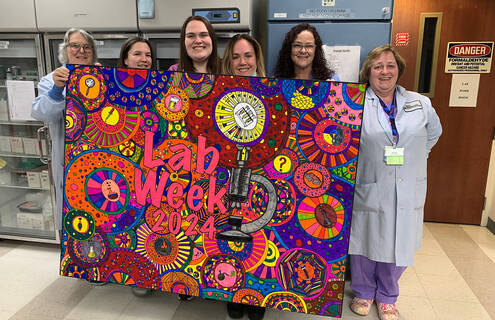
Have you wondered who conducts and analyzes the detailed laboratory testing for your annual exam, such as cholesterol and glucose levels?
Medical Laboratory Science is a healthcare career for those who enjoy science and medicine but may prefer to be behind the scenes. Medical laboratory professionals provide up to 70% of the data physicians and others use to make informed decisions about diagnosis and treatment plans.
More visible healthcare professionals may take your blood or other specimens for analysis; however, medical laboratory professionals conduct complex and important work on those specimens while largely invisible to patients, and the results of that work may very well save your life.
Here are just a few of the important tests we conduct:
- We prioritize and perform complex, rapid molecular testing during outbreaks like the COVID-19 pandemic.
- We type and match blood during emergency and routine surgery.
- We provide life-saving diagnoses for genetic disorders like sickle cell disease, infections such as methicillin-resistant Staphylococcus aureus (MRSA), and chronic conditions like cancer or diabetes.
Doctors rely on laboratory test results to make informed patient diagnoses. Patient history and physical signs and symptoms are vital, but most diagnoses need confirmation that only laboratory tests can provide. Laboratory professionals also contribute to wellness testing, guiding treatment, and monitoring patient progress.
In addition to performing the tests, these professionals also have a critical role in helping clinicians know how to collect specimens and interpret test results. Laboratory professionals work in a variety of environments, including hospital laboratories, small clinics, and public health laboratories.
We need more medical laboratory professionals
Our profession is at a critical crossroad of employee shortages. Employment in healthcare occupations is projected to grow 19% from 2014 to 2024, much faster than the average for all occupations, adding about 2.3 million new jobs. The difference for our profession is that we have long been hidden from public consciousness. Educators and career counselors at all levels are not aware of our important role in the healthcare ecosystem.
There are two- and four-year degree options for MLS careers. The education focuses on key areas of clinical laboratory science. To learn more about careers in laboratory science, visit River Valley Community College (AS), UNH (BS), and UVM (BS) or email SPayeur@cheshire-med.com.